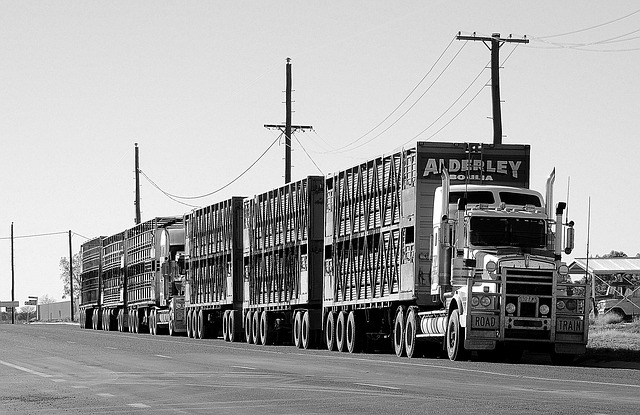
Some things just keep getting better with age. Thousands of years ago, ancient traders used a financial tool now called “factoring” to support their business activities. Today’s truckers can do the same but even more effectively.
Managing cash flow can be challenging, particularly while keeping up with the obligations of the road. Freight factoring companies can make it much easier for truckers to focus on the work that pays the bills, instead of worrying about collecting.
Just What is Factoring?
Dating all the way back to 1754 BC, the Code of Hammurabi includes rules regulating an early form of factoring. Over the millennia since, those with outstanding accounts receivable have sought to turn them into present-day cash.
A party willing to make the exchange is called a “factor,” and the process itself is known as “factoring.” Ever since the early days of factoring, from the Ancient Mesopotamians and Romans through the Industrial Revolution and the present day, such arrangements have allowed the owners of accounts receivable to sell to others the right to collect on them. Instead of waiting out the usual collection period, the seller benefits from immediate access to cash, while the factor makes a modest profit for providing a useful service and creating better cashflow. We have an complete invoice factoring guide to help you learn more. Or just keep reading for the specific on freight bill factoring.
Recourse and Non-recourse Factoring
The modern options are more sophisticated and refined than those of the past, of course. Revolution-era American colonists relied heavily on factoring deals where the factor would simply advance payments due for goods that had been sent overseas or on a long delivery. In cases where the recipient failed to pay up on time, the party to whom the money had been advanced would be forced to make the factor whole.
Truckers and others today can typically choose between two options, though:
- Non-Recourse Factoring: Under the terms of these arrangements, a trucker’s obligations come to an end when the factor first hands over the cash, regardless of whether the freight bill is paid on time or not. It’s the factoring companies responsibility to collect on this, so it takes due diligence on their side to make sure that the business on the invoice has good credit worthiness.
- Recourse Factoring: While lower fees apply to this type of factoring, the risk of a business defaulting on the invoice falls on the invoice seller. Arrangements of the traditional kind are still common, too, and can make good sense in some cases.
Because non-recourse factoring poses a greater risk to factors, some price premium is to be expected. With freight bills where the debtor in question is known to be reliable and in strong financial shape, though, the additional costs could be low.
In other cases, a trucker might decide that the risk a particular shipper or broker represents justifies a higher price for the security that non-recourse factoring can provide. Factors that offer both styles of funding will often be willing to explain the thinking that goes into offers of each kind. To learn more about which type of factoring might be right for you, read our information on the difference between recourse and non-recourse factoring.
Why Factoring Works So Well for Truckers
Often juggling many different clients, truckers are among those who typically benefit from factoring the most. Making strategic use of freight bill factoring can produce many advantages for truckers:
- Immediate, Debt-Free Access to Cash: The most obvious of these is simply that a factor provides cash in the here and now for a freight bill where payment is not due until later. Unlike many forms of lending, freight bill factoring also comes without conditions regarding how the money is to be spent. Particularly with non-recourse forms of factoring, the other obligations that generally come with borrowing are avoided, as well. This is especially important in the transportation industry where clients may take up to 90 days to pay. Having cash on hand to be spent at your discretion. Most companies will even provide up to 96% of the freight invoice value.
- Lessened Exposure to Risk: Where non-recourse factoring is used, risks can also be reduced. For a trucker working with a new broker or shipping company that does not necessarily inspire a lot of confidence, paying a factor to take on the risk of late payment or default can easily prove worthwhile. A trucker can even call a factor before agreeing to transport a particular load, knowing that cash will be forthcoming once delivery has been confirmed.
- More Predictable, Manageable Cash Flow: Many truckers experience cash-flow swings that can make managing a business difficult. Judicious use of factoring can smooth cash flows, making it much easier to balance spending and income.
- Fewer Worries and More Time to Focus on Trucking: Perhaps most importantly of all, the right freight bill factoring arrangements can allow truckers to focus on driving and making money. Just as retaining a bookkeeper or other help can pay off in more time to focus on trucking, so can factors lighten the load. The fees paid for a particular factoring deal should therefore not be judged solely against the value of the freight bill itself, but also the increased output the service can enable.
Common Mistakes and What to Look for in a Factor
Factoring is as powerful of a tool as its long history would suggest. Various kinds of accounts receivable factoring are widely used today in industries ranging from oil and gas production to manufacturing, staffing, technology, and telecommunications. Small businesses use it to maintain some of the most important functions such as using payroll factoring companies to ensure that they can always pay their workers on time.
Truckers and transportation companies also regularly make good use of factoring themselves. Being aware of a couple of common mistakes can make it even easier to succeed:
-
Mistake #1 – Misunderstanding Fees and Other Terms:
Some non-recourse factors charge flat, simple fees that are always easy to understand. Especially under many recourse-based factoring arrangements, though, fees will essentially amount to interest that piles up weekly until the customer associated with the freight bill pays up. With recourse factoring, an additional payment will often be due to the trucking company at that point, as well, adding to the amount of cash that was originally advanced.
-
Mistake #2 – Overlooking Minimums, Exclusivity Provisions, and Similar Restrictions:
Some freight bill factoring contracts will also include stipulations that can inhibit future flexibility. Certain factors, for example, will ask that truckers factor all invoices from particular customers or meet monthly volume minimums. In some cases, clauses like these will mesh well with a trucking company’s goals and allow for more generous terms than would otherwise be offered. They should always be recognized for what they are, though, and accepted only knowingly and when the overall agreement they are part of makes sense. Be sure to consider all the common factoring mistakes to avoid when selecting a company to work with.
Issues like these tend to most often affect those who are fairly new to freight bill factoring. Like any other tool, factoring is something that can be used even more effectively as experience increases. Starting off with the right kind of factoring companies can make the process that much smoother and success more certain.
A few tips to choosing a freight factoring company:
- Transparency and Customer Service: Especially for those who are not yet experienced with freight-bill factoring, it can pay to seek out factors who display a real interest in keeping their clients informed. Factors often do well to build long-term, mutually rewarding relationships, so this is not as rare as some might suppose. A factor who will patiently explain every option, fee, and contract clause might well be a better choice, especially for a newcomer, than one who focuses more on high volume and slightly lower fees.
- Stability and Experience: Just like with shipping brokers and transportation companies, the factoring industry is one that sees a fair amount of turnover. While more confident, experienced truckers might be able to take an occasional risk, those new to factoring will mostly do well to stick to factors who have been in business for some time.
- Flexibility: Once freight bill factoring starts becoming a regular, relied-upon part of a particular trucking business, it can make sense to branch out. Some factors will be quite a bit more flexible than others, and that can improve the value proposition they present to particular truckers. Whether that means extending the same rates regardless of how billing originates or taking care of invoices that customers send to you through them, especially flexible factors can be even more of a pleasure to work with.
While factoring can seem a little confusing at first, then, there is really nothing to be afraid of. The basic idea has been relied upon for thousands of years, and countless trucking companies use it successfully today. Adding factoring to a trucker’s toolbox can be a great way of becoming even more competitive and successful, while also focusing more on the work that keeps a business running. To find an extensive list of Freight factoring companies to work with



